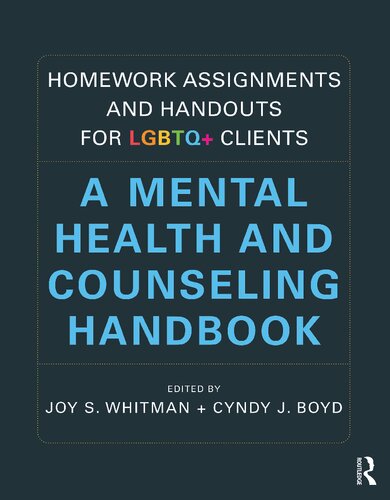

Most ebook files are in PDF format, so you can easily read them using various software such as Foxit Reader or directly on the Google Chrome browser.
Some ebook files are released by publishers in other formats such as .awz, .mobi, .epub, .fb2, etc. You may need to install specific software to read these formats on mobile/PC, such as Calibre.
Please read the tutorial at this link: https://ebookbell.com/faq
We offer FREE conversion to the popular formats you request; however, this may take some time. Therefore, right after payment, please email us, and we will try to provide the service as quickly as possible.
For some exceptional file formats or broken links (if any), please refrain from opening any disputes. Instead, email us first, and we will try to assist within a maximum of 6 hours.
EbookBell Team

5.0
88 reviewsFeaturing over 70 affirming interventions in the form of homework assignments, handouts, and activities, this comprehensive volume helps novice and experienced counselors support LGBTQ+ community members and their allies.
Each chapter includes an objective, indications and contraindications, a case study, suggestions for follow-up, professional resources, and references. The book’s social justice perspective encourages counselors to hone their skills in creating change in their communities while helping their clients learn effective coping strategies in the face of stress, bullying, microaggressions, and other life challenges. The volume also contains a large section on training allies and promoting greater cohesion within LGBTQ+ communities.
Counseling and mental health services for LGBTQ+ clients require between-session activities that are clinically focused, evidence based, and specifically designed for one or more LGBTQ+ sub-populations. This handbook gathers together the best of such LGBTQ+ clinically focused material. As such, it will appeal both to students learning affirmative LGBTQ+ psychotherapy/counseling and to experienced practitioners. Offering practical tools used by clinicians worldwide, the volume is particularly useful for courses in clinical and community counseling, social work, and psychology. Those new to working with LGBTQ+ clients will appreciate the book’s accessible foundation to guide interventions.